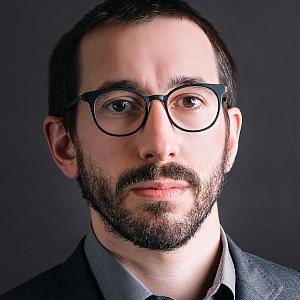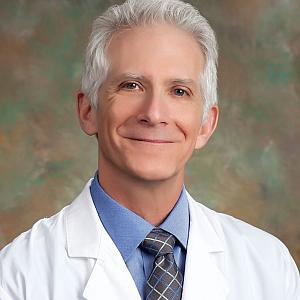Ghosted: Desperately Seeking Mental Health Care
For too many Americans, calls for help go unanswered during a mental health crisis. The nationwide shortage of providers is well-known. But little known “ghost networks” also play an insidious and hidden role. That’s when insurers’ directories, seemingly full of in-network providers, turn out to be badly out of date, inaccurate or deceptive. Finding a doctor or therapist who will see you can take countless hours of phone calls and still prove fruitless. One mother called 73 doctors in her plan’s network when seeking help for her daughter’s anxiety — none were available within two months. For someone already deep in a crisis, this kind of bureaucratic ordeal couldn’t come at a worse time. Missed or delayed treatment can worsen a downward spiral, or even turn fatal for those struggling with addiction or suicidal thoughts. Critics say that the widespread problem makes a mockery of mental health parity — the idea that mental health coverage should be as robust as health care for other conditions. Last month, the Biden administration announced plans to impose new requirements on insurers to ensure patients can access providers in their mental networks. Will it work? In this webinar, we’ll examine the challenge facing many Americans when trying to access mental health care through commercial health plans, ask why these problems are so stubbornly persistent, and explore what can be done to lessen the gap between physical and mental health care in this country. We’ll also share story ideas and strategies, since these barriers to mental health care exist in every community.
This webinar is free and made possible by the National Institute for Health Care Management Foundation, the Commonwealth Fund, and The California Endowment.
Panelists

Max Blau is a reporter with ProPublica’s South unit, covering health care, public health and the environment. His work has uncovered a series of preventable deaths that occurred within a prominent transplant center in Tennessee, exposed a powerful utility’s controversial toxic waste disposal practices in Georgia and revealed how a wealthy governor’s family perpetuated a harmful legacy of environmental injustice in Alabama. He and his colleagues published “Sacrifice Zones,” a series that examined how toxic air pollution from industrial plants has elevated cancer risk for millions of Americans. The series, which helped spur reform, won an Association of Health Care Journalists award for best public health reporting and was a finalist for a National Magazine Award. Before ProPublica, Blau was an independent journalist who published stories in a variety of national publications, including the Atavist, the Atlantic, Time and STAT, where he covered health care as a Southern correspondent. He had worked as a staff writer for CNN, Atlanta magazine and the Atlanta alt-weekly Creative Loafing. He also co-founded Canopy Atlanta, a local news organization that pays and trains community members to become journalists.

Abigail Burman is an attorney at Motley Rice, where she represents consumers in litigation against large tech companies. She was previously a Justice Catalyst/Public Rights Project fellow at Yale Law School, focusing on state regulation of health insurance provider directories and regulatory approaches to expanding abortion access. She continues to consult with consumers, nonprofits, and elected officials on both these topics. She received her law degree from the University of California, Berkeley School of Law and clerked for Associate Judge Roy W. McLeese, III of the District of Columbia Court of Appeals, and U.S. District Judge Janet Bond Arterton of the District of Connecticut. Prior to law school she was a Legislative Assistant for Representative Joseph P. Kennedy, III of Massachusetts.

Robert Lee Trestman, Ph.D., M.D., is the chair of psychiatry and behavioral medicine at Virginia Tech Carilion School of Medicine. Trestman is a nationally recognized expert in psychiatry and population health, with an extensive background in education and research. He previously was a tenured professor of medicine and psychiatry at the University of Connecticut School of Medicine, with a joint appointment as professor of nursing. He served as executive director of Correctional Managed Health Care (CHMC), a division of the University of Connecticut Health Center, where he led a health system that provided global health care to all inmates within the Connecticut Department of Correction. Trestman joined Carilion Clinic and the Virginia Tech Carilion School of Medicine in 2017. He has authored or coauthored over 180 peer reviewed articles, book chapters, and commentaries. Trestman is the chair of the American Psychiatric Association’s Council on Healthcare Systems and Financing; a board member of the American Hospital Association; and is Councilor to the American Association of Chairs of Departments of Psychiatry. He chaired the 2023 APA Workgroup on the Future of Psychiatry.
Suggested reading
“‘I Don’t Want to Die’: Needing Mental Health Care, He Got Trapped in His Insurer’s Ghost Network,” by Max Blau, ProPublica
“Struggling to Find an In-Network Mental Health Provider? Here’s What You Can Do.” By Max Blau, ProPublica
“What Mental Health Care Protections Exist in Your State?” By Annie Waldman and Maya Miller, ProPublica
“Why I Left The Network,” by Annie Waldman, Maya Miller, Duaa Eldeib and Max Blau, ProPublica
“73 doctors and none available: How ghost networks hamper mental health care,” by Katherine Ellison, The Washington Post
“Mental Health ‘Ghost Networks’ — And a Ghostbuster,” An Arm and a Leg podcast
“Laying Ghost Networks to Rest: Combatting Deceptive Health Plan Provider Directories,” by Abigail Burman, Yale Law & Policy Review, 2021
“The human cost of ghost networks,” by Rhitu Chatterjee and Max Blau, NPR
“Patients sue Anthem over ‘deceptive’ mental health coverage,” by Amanda D’Ambrosio, Crain’s New York Business, Oct. 23, 2024
